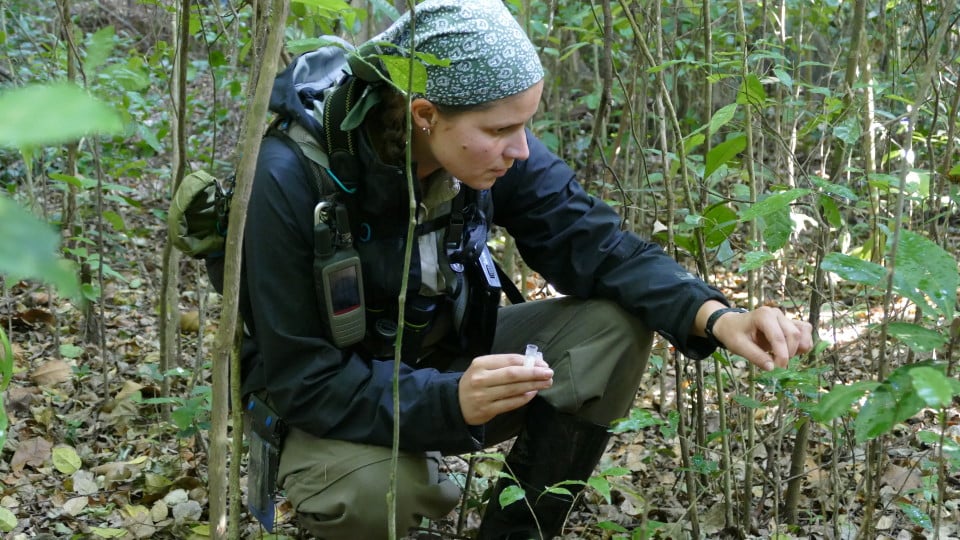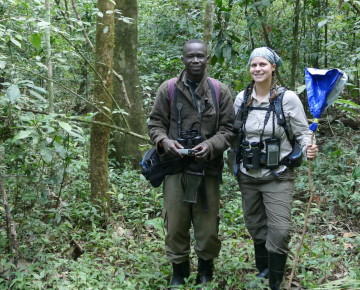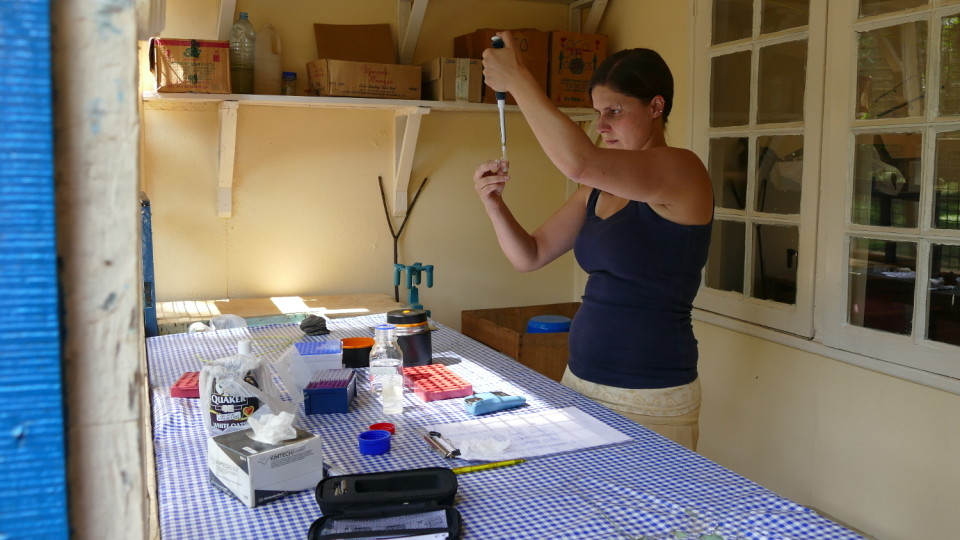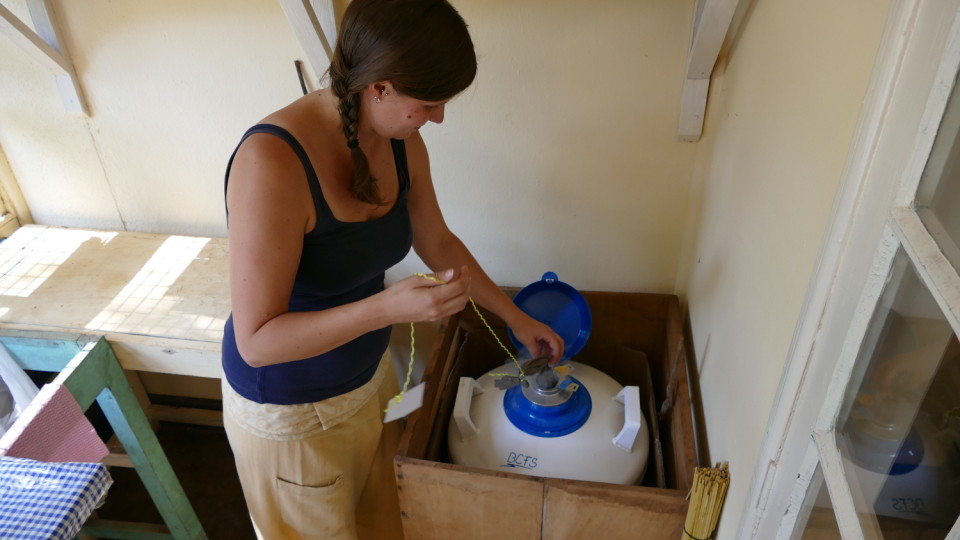Grantee Spotlight
Corinne Ackermann is a PhD candidate from the Université de Neuchâtel. She was awarded a Leakey Foundation Research Grant for her project entitled “Social bonds and oxytocin in wild juvenile chimpanzees (Pan troglodytes).”

Oxytocin is a hormone which seems, in different animals and humans, to play a key role in social bonding, like mother-offspring bonds and pair bonds, but also in long term bonds between related and unrelated individuals (friendships). Understanding of how oxytocin relates to social bonding in human closest relative, the chimpanzee, is likely to shed light on the evolutionary history of this hormone and its role in the formation of long-term social bonds like the friendships we can observer in modern humans.

The aim of my PhD project is to investigate how oxytocin levels, social interactions, and social bond status are related in wild juvenile chimpanzees. During their development juvenile chimpanzees go through an important behavioral change during which they are still tied to their mothers and siblings (established long term bond) but also start to interact with unrelated group members (novel social partners). Studying oxytocin levels in juvenile chimpanzees during this social transition phase enables us to address a fundamental question concerning the physiological basis of social behavior: is oxytocin involved only in maintaining existing social bonds as previous studies suggest or is it also important in establishing new social bonds?
I monitor wild chimpanzee juveniles throughout their daily activities collecting detailed behavioral data and urine samples, in the Sonso community of Budongo Forest Reserve, Uganda. I will later analyze the samples for their oxytocin concentration. To answer my question I will test the influence of social behaviors and bond status of the partner on the measured oxytocin levels.





